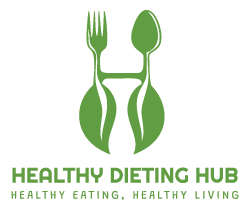
Dear friends, there is no easy way, nor short cuts, to achieve a slim and defined looking body. The plain and hard truth is that it is essential to practice sports on a regular basis. If you complement the exercises with the correct dose of proteins, you will have a body with toned and strong muscles.
To shed fat and increase muscle definition, you should do endurance sports (such as weight training) 2-3 times a week and incorporate cardiovascular work (such as jogging or cycling) 2-3 times a week into your routine. Week. If you want to be strong and beautiful, each session should last between 30 and 45 minutes, no less.
You’ll build muscle and lose fat faster if you eat protein-rich foods every few hours. Fish, chicken, eggs, beef are high protein foods. As little as 6 grams of protein (more is not better) can accelerate protein synthesis in the muscles after exercise. Expensive protein powder and amino acid supplements are no more effective than common foods (eg, meat, fish, and eggs) in supplying necessary amino acids.
Protein consumption and exercises
Tips to consume enough protein to complement the exercises:
Eat 1.7 grams of protein per pound of weight daily to start with, and then go down to 2 grams per pound.
Consume part of your protein ration before and after training, when your body can use it the most. In general, spread your intake throughout the day instead of concentrating it on a couple of meals.
If you consume less than 2 grams per kilo of body weight per day, rely mostly on whole foods to get your protein allowance.
Do not go without carbohydrates if you eat large amounts of protein to increase the size of your muscle mass. Reducing carbohydrates will cause the body to use branched-chain amino acids for energy – not muscle growth – especially during endurance exercise.
Drink lots of water. The more protein you consume, the more fluids you need to avoid dehydration.
Exercise, light meals, and complete proteins
Eating light meals instead of eating large meals stimulates metabolism, reduces feelings of hunger by stabilizing blood glucose levels and keeps energy levels high. The simplest formula for this is to eat your normal breakfast, lunch and dinner, and have a pick-me-up bar as a snack (mid-morning or mid-afternoon).
Every cell in the human body contains protein. Protein is a very important part of the skin, muscles, organs and glands. You need protein in your diet to help your body repair cells and make new cells. Proteins are also important for growth and development during childhood, adolescence, and pregnancy.
Foods that contain complete or incomplete proteins. Complete proteins contain all nine essential amino acids for life and are found in animal foods such as beef, fish, poultry, eggs, milk, and dairy products such as yogurt and cheese. Soybeans are the only vegetable protein considered to be a complete protein. Incomplete proteins lack one or more of the essential amino acids and their sources include beans, nuts, seeds and grains. A small amount of incomplete protein is also found in vegetables.


